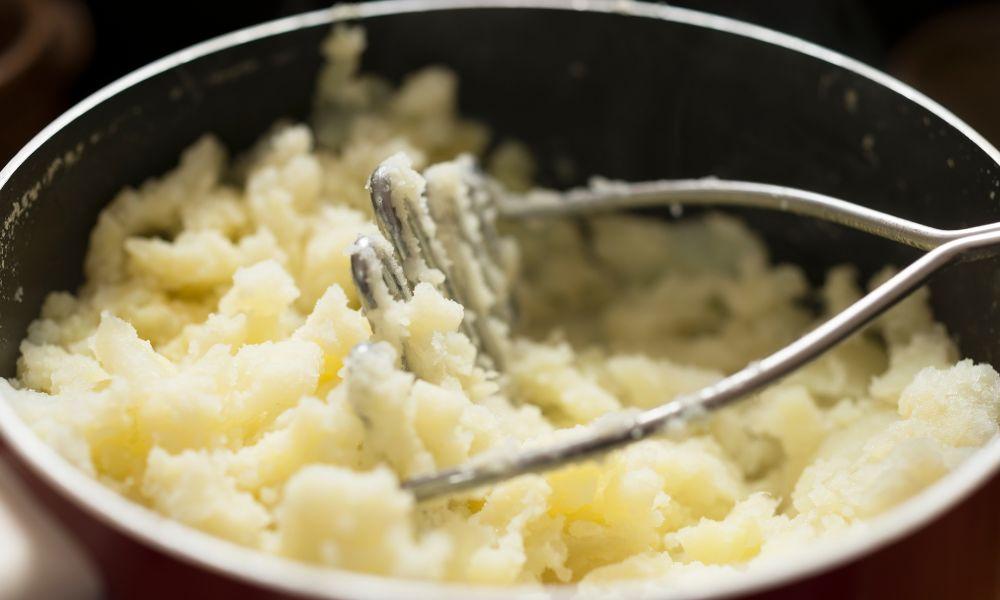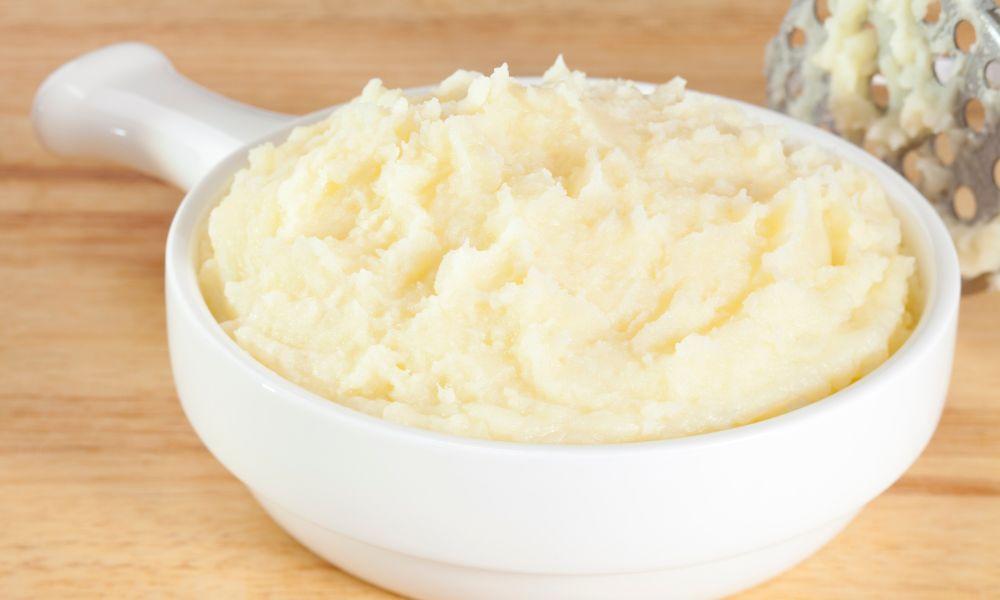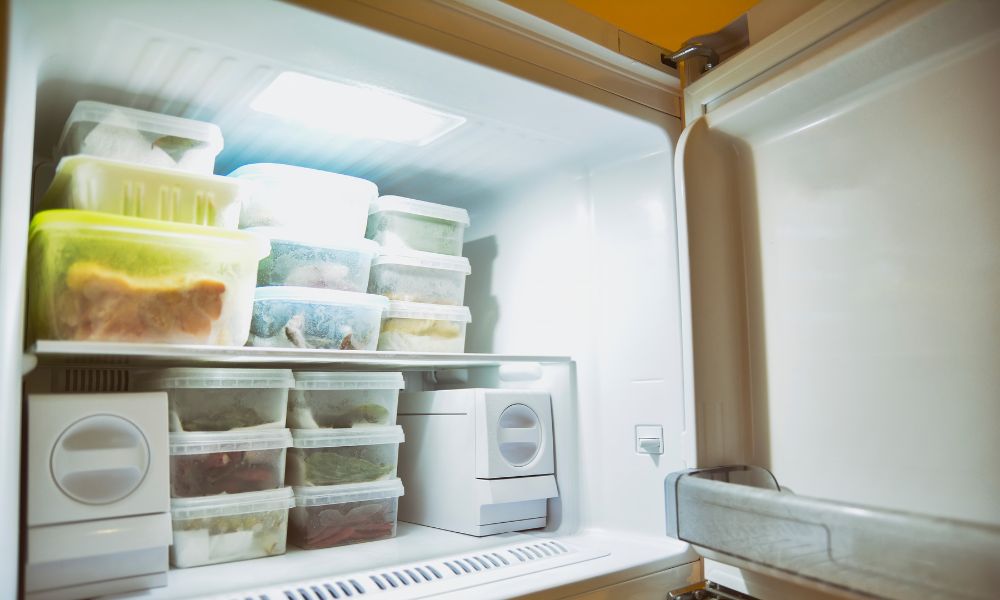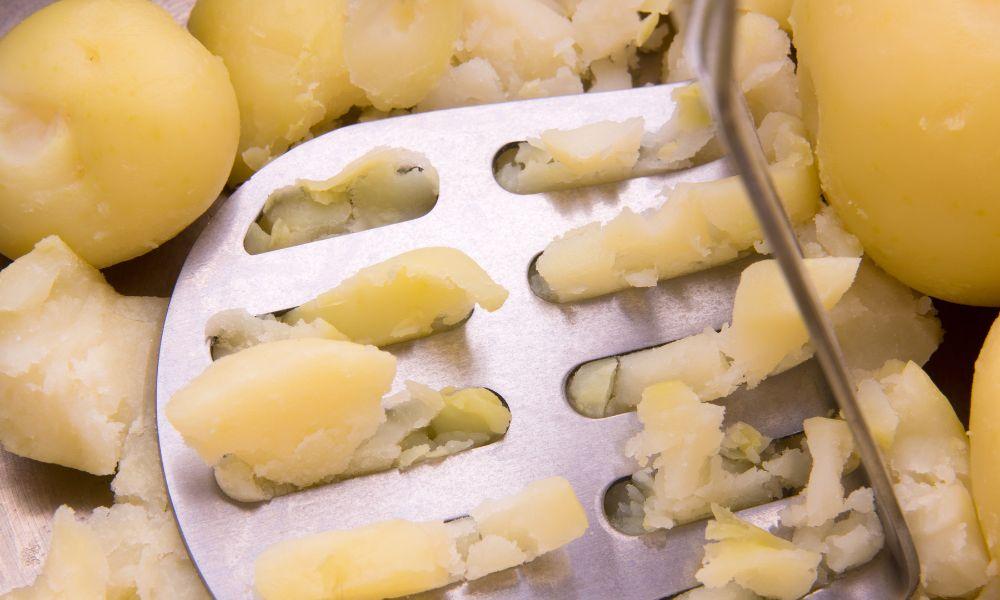As a mashed potato enthusiast, I’ve had my fair share of scrumptious, creamy spuds. After perfecting my recipe and often making large batches for friends and family, I’ve found myself with leftovers more times than I can count.
Naturally, the question arises: how long can mashed potatoes last in the fridge? After a few experiments and some research, I’ve discovered the secrets to keeping those delectable mashed potatoes fresh and enjoyable for as long as possible. In this article, I’ll share my findings and tips to help you make the most out of your delicious leftovers.

How Long Can Mashed Potatoes Last in the Fridge?
Mashed potatoes can last in the fridge for 3-5 days when stored correctly. To ensure their freshness and safety, store them in an airtight container at a temperature of 40°F (4°C) or below.
However, it’s essential to monitor the potatoes for any signs of spoilage and discard them if they show any changes in odor, texture, or taste.
Factors Affecting Mashed Potato Shelf Life
The shelf life of mashed potatoes depends on several factors, such as:
- Temperature
- Moisture content
- Presence of additives
- Storage method
Signs of Spoilage
Spoiled mashed potatoes may exhibit the following signs:
- Unpleasant odor
- Mold growth
- Slimy texture
- Off-taste
The Science Behind Food Spoilage

The Role of Bacteria and Fungi
Bacteria and fungi are the primary causes of food spoilage. They feed on the nutrients in food, leading to changes in texture, taste, and appearance. Proper storage can slow down the growth of these microorganisms, prolonging the shelf life of your food.
Factors Affecting Food Spoilage
Food spoilage can be influenced by:
- Temperature
- Humidity
- Light exposure
- Presence of oxygen
Understanding these factors can help you store your mashed potatoes more effectively.
Freshly Made Mashed Potatoes

Ideal Serving and Storage Temperature
Serve mashed potatoes at a temperature of around 140°F (60°C) to maintain their quality. Once they start cooling, bacteria can begin to multiply, so it’s important to store leftovers promptly.
Immediate Storage Tips
If you have leftover mashed potatoes, follow these steps:
- Allow them to cool for no more than two hours.
- Transfer to an airtight container.
- Refrigerate or freeze.
Refrigerating Mashed Potatoes
Optimal Temperature for Storage
Store mashed potatoes in the fridge at a temperature of 40°F (4°C) or below to slow bacterial growth.
The Importance of Airtight Containers
Airtight containers protect mashed potatoes from contamination, maintain their moisture, and prevent them from absorbing odors from other foods.
Separating Different Food Items
Keep your mashed potatoes away from raw meats, poultry, and seafood to avoid cross-contamination.
Shelf-Life of Refrigerated Mashed Potatoes

Plain Mashed Potatoes
Plain mashed potatoes can last for 3-5 days in the fridge if stored correctly.
Mashed Potatoes with Additives (Cheese, Bacon, etc.)
Mashed potatoes with additives may have a shorter shelf life due to the additional ingredients. Monitor them closely for signs of spoilage.
Freezing Mashed Potatoes

Proper Freezing Techniques
Freezing mashed potatoes is an excellent option for long-term storage. Follow these steps:
- Allow mashed potatoes to cool completely.
- Transfer to airtight containers or heavy-duty freezer bags.
- Label with the date and contents.
- Freeze at 0°F (-18°C) or below.
Thawing and Reheating Instructions
To thaw and reheat frozen mashed potatoes:
- Place in the refrigerator overnight or use the defrost setting on your microwave.
- Reheat on the stovetop or in the microwave, stirring frequently, until they reach at least 165°F (74°C).
Shelf-Life of Frozen Mashed Potatoes
Properly frozen mashed potatoes can last for up to 12 months. However, for the best quality, consume them within 2-3 months.
Maximizing Mashed Potato Freshness

Choosing the Right Ingredients
Select high-quality, fresh potatoes for the best results. Ensure that all other ingredients, such as butter and milk, are also fresh.
Proper Cooking Techniques
Cook your potatoes evenly and thoroughly. Overcooking or undercooking can impact their quality and storage life.
Cooling and Storing Guidelines
Follow the cooling and storage tips mentioned in sections IV and V to maximize the freshness of your mashed potatoes.
Safety Precautions and Best Practices
Recognizing Spoiled Mashed Potatoes
Be vigilant about checking for signs of spoilage, such as off-odors, sliminess, or mold. Discard spoiled mashed potatoes immediately.
Food Handling Tips
Wash your hands and kitchen utensils thoroughly before and after handling food. This helps minimize the risk of contamination.
Preventing Cross-Contamination
Store your mashed potatoes away from raw meats, poultry, and seafood. Use separate cutting boards and utensils for different food items.
Summary
Mashed potatoes can last for 3-5 days in the fridge if stored correctly. Proper food storage techniques are essential to prolong their freshness and ensure your safety. Follow the guidelines provided in this article to enjoy delicious mashed potatoes for days to come. And remember, food safety is a priority; when in doubt, throw it out.
For more information on food storage, check out our article on how long does whole wheat bread last.
FAQs
How long can mashed potatoes last in the fridge?
Mashed potatoes can last for 3-5 days in the fridge when stored correctly in an airtight container at a temperature of 40°F (4°C) or below.
What are the signs of spoiled mashed potatoes?
Spoiled mashed potatoes may exhibit an unpleasant odor, mold growth, slimy texture, or off-taste.
Can you freeze mashed potatoes?
Yes, you can freeze mashed potatoes. Store them in airtight containers or heavy-duty freezer bags at 0°F (-18°C) or below. Properly frozen mashed potatoes can last for up to 12 months, but for the best quality, consume them within 2-3 months.
How do you reheat refrigerated or frozen mashed potatoes?
Reheat refrigerated mashed potatoes to at least 165°F (74°C) before consuming. For frozen mashed potatoes, thaw them in the refrigerator overnight or use the defrost setting on your microwave, then reheat on the stovetop or in the microwave, stirring frequently, until they reach at least 165°F (74°C).
How can I maximize the freshness of my mashed potatoes?
To maximize the freshness of your mashed potatoes, choose high-quality, fresh ingredients; cook your potatoes evenly and thoroughly; and follow proper cooling, storage, and reheating guidelines.
What precautions should I take when handling and storing mashed potatoes?
Ensure proper hand and utensil hygiene, recognize signs of spoilage, and prevent cross-contamination by keeping mashed potatoes separate from raw meats, poultry, and seafood. Use separate cutting boards and utensils for different food items.